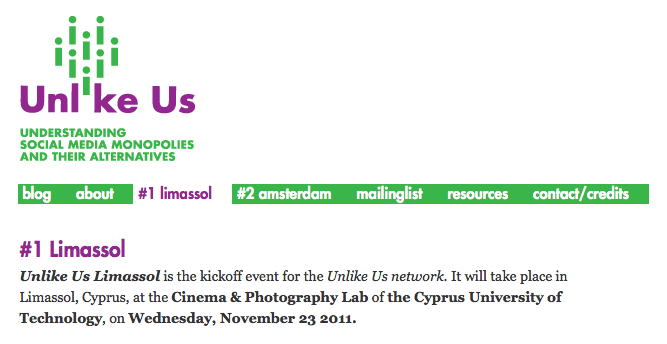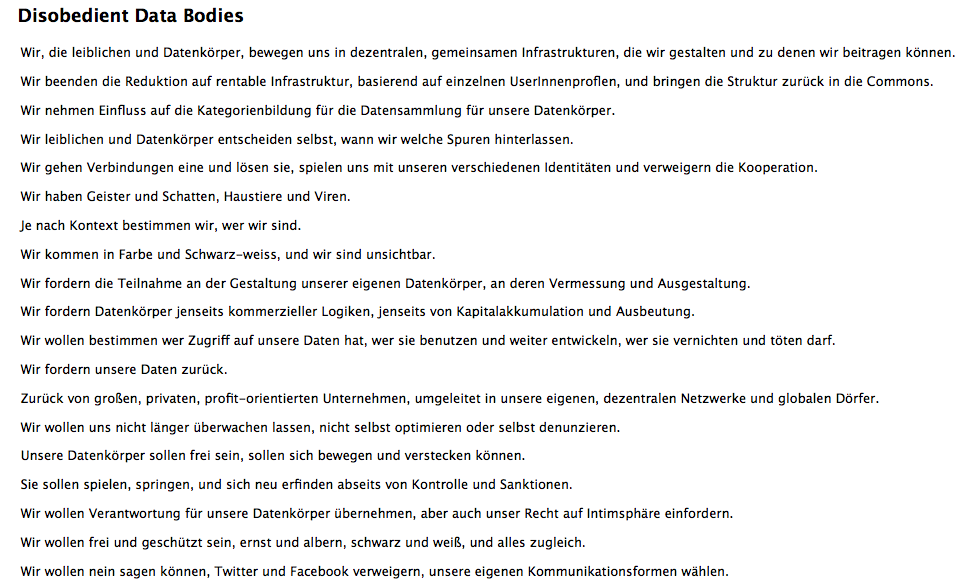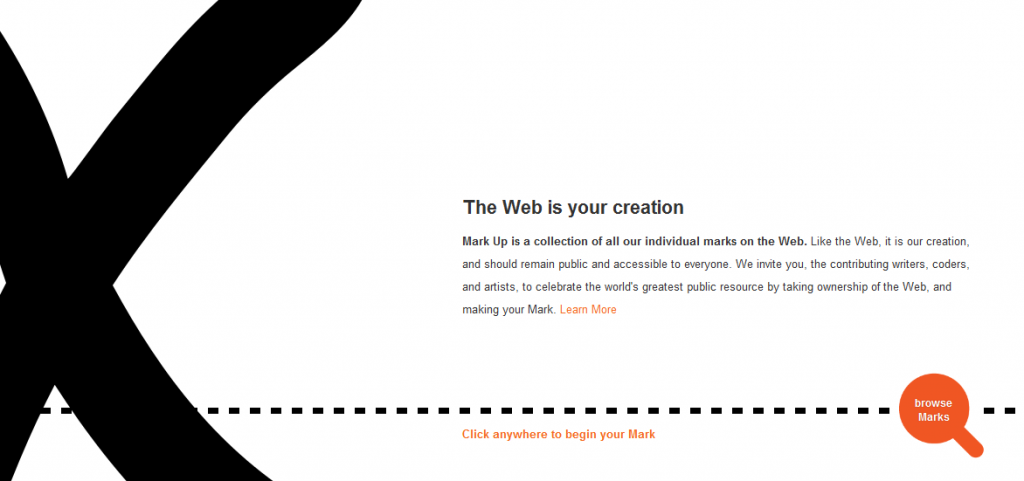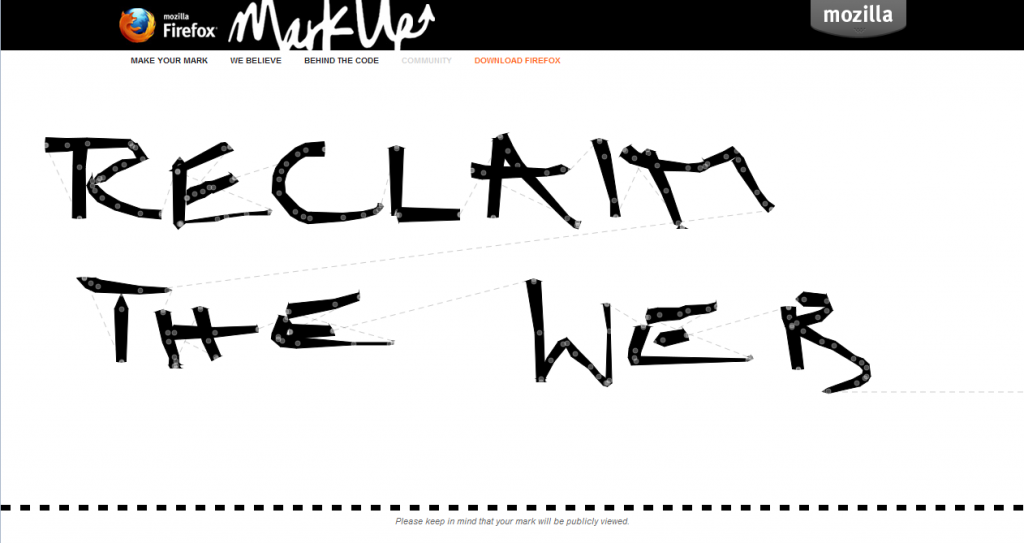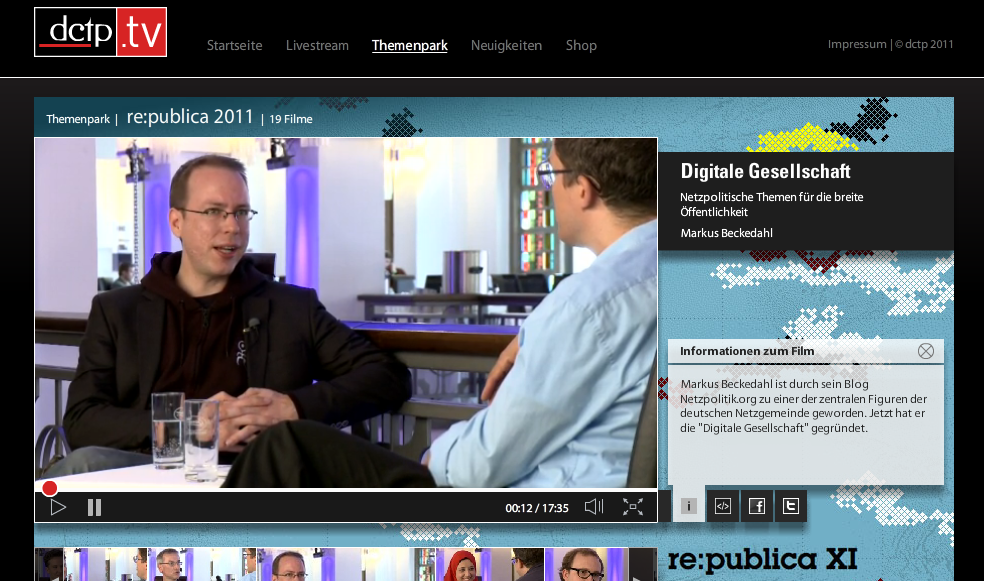And yet another pretty cool event I’ll attend in March (8-10); without presenting though. It’s the second event of the Unlike Us Network initiated by Geert Lovink (Institute of Network Cultures/HvA, Amsterdam) and Korinna Patelis (Cyprus University of Technology, Limassol). It’s supposed to bring together artists, designers, scholars, activists and programmers who work on ‘alternatives in social media’. That’s how the event is described on the network cultures institute website:
Unlike Us 2 will focus on the concept of free exchange and the commercial exploitation of online social relationships which lie at the heart of contemporary capitalism. In addition to speakers addressing this theme a range of alternative social media projects will be showcased. Facebook makes everyone believe There Is No Alternative, but Unlike Us dares to differ. – I’m curious about that!
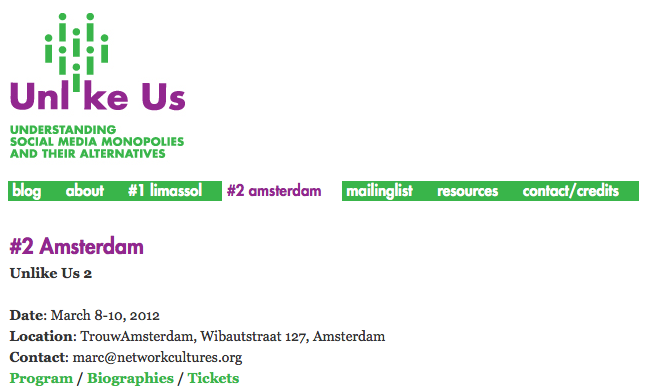 Confirmed speakers and presenters: David M. Berry (UK), Frederik Zuiderveen Borgesius (NL), Philipp Budka (AT), Thomas Chenesau (FR), Jodi Dean (USA), Carolin Gerlitz (UK), Seda Guerses (TR/BE), Spideralex (ES), Anne Helmond (NL), Eva Illouz (IL), Walter Langelaar (NL), Ganaele Langlois (CA), Carlo v. Loesch/lynx (DE), Caroline Nevejan (NL), Arnold Roosendaal (NL), Eleanor Saitta (USA), Max Schrems (AT), Elijah Sparrow (USA) and James Vasile (USA).
Confirmed speakers and presenters: David M. Berry (UK), Frederik Zuiderveen Borgesius (NL), Philipp Budka (AT), Thomas Chenesau (FR), Jodi Dean (USA), Carolin Gerlitz (UK), Seda Guerses (TR/BE), Spideralex (ES), Anne Helmond (NL), Eva Illouz (IL), Walter Langelaar (NL), Ganaele Langlois (CA), Carlo v. Loesch/lynx (DE), Caroline Nevejan (NL), Arnold Roosendaal (NL), Eleanor Saitta (USA), Max Schrems (AT), Elijah Sparrow (USA) and James Vasile (USA).

